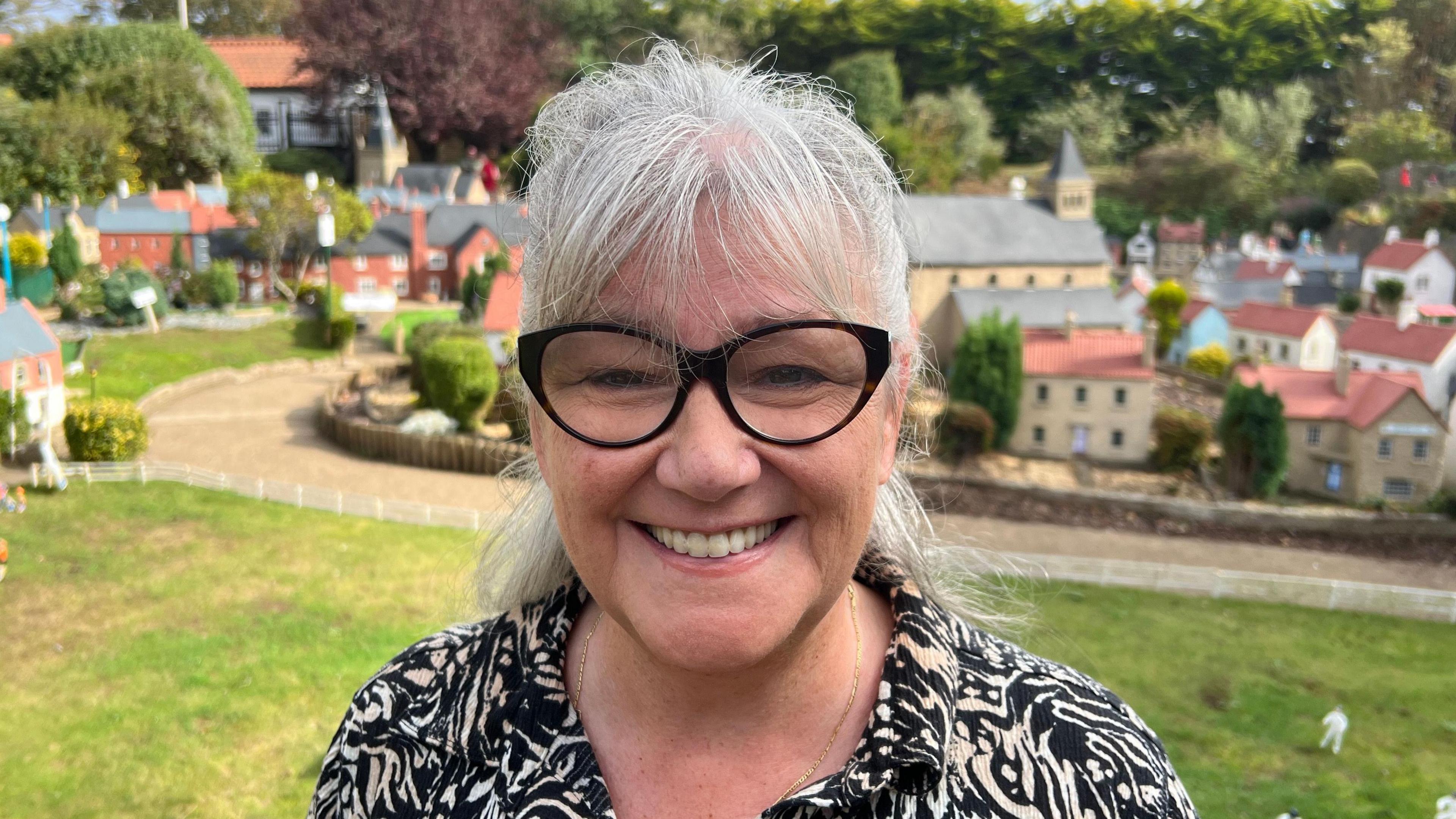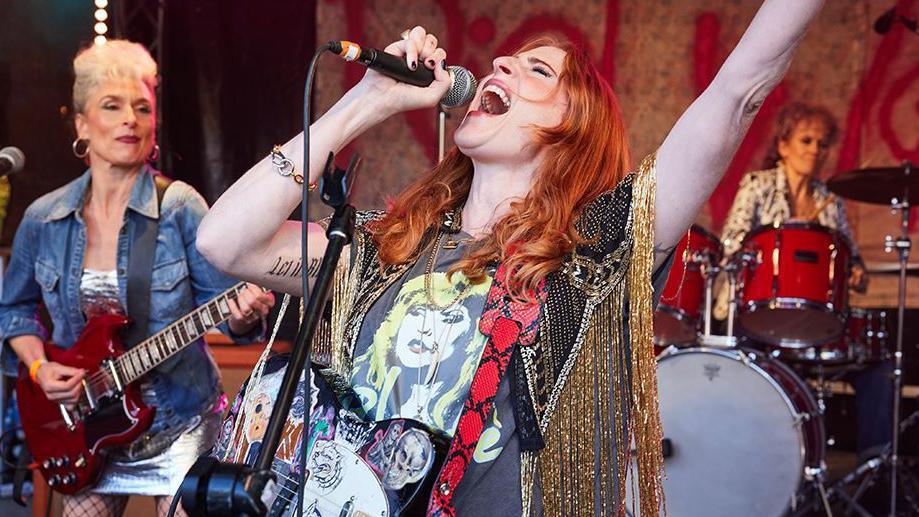The South Asian women wanting more menopause chats
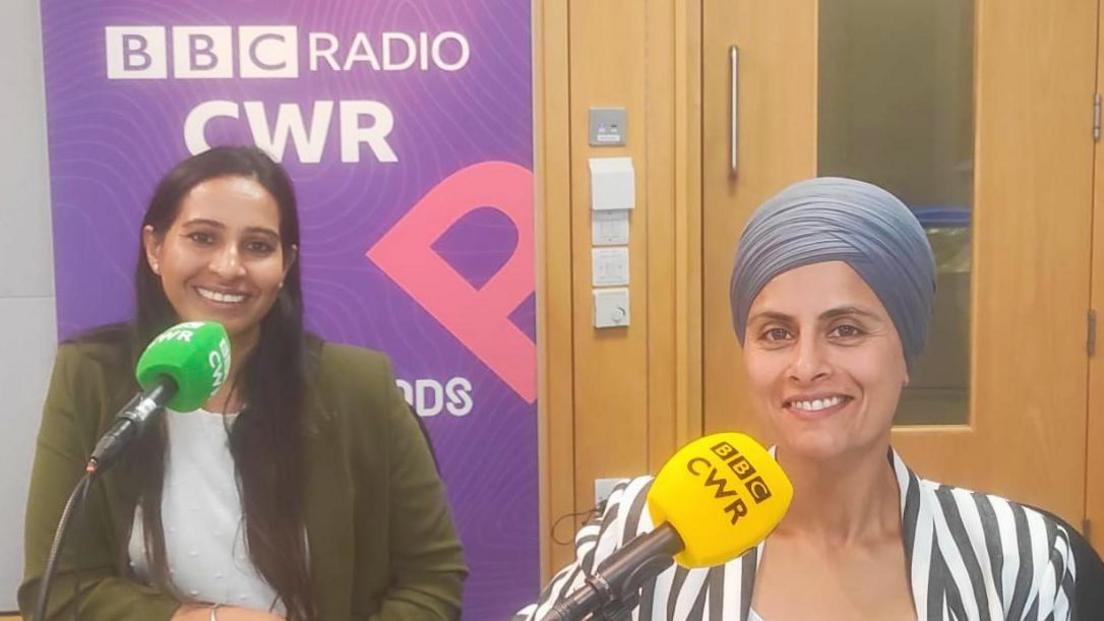
Veerpal Sandhu (left) and Inderpal Flora have teamed up to create safe spaces for women to talk about menopause
- Published
The consequences of not talking about menopause in South Asian families can be far-reaching and lead to marriages breaking down, according to a pharmacist.
Veerpal Sandhu said there need to be more open-minded conversations around the issue as silence is "leading to relationship breakdown, extra-marital affairs and divorce".
Ahead of World Menopause Day on Saturday, the pharmacist and her friend, Inderpal Flora, who leads a community wellbeing group called Nirmal Pure Mind, said they have paired up to create safe spaces for women to talk.
Ms Sandhu said menopause carried an aura of shame in some South Asian communities.
What is the menopause and what are the main signs?
- Published7 November 2024
'Marginalised and menopausal' women given spotlight
- Published10 October
Group tackles South Asian menopause 'taboo'
- Published12 August
"Women experiencing symptoms like irritation, low mood and fatigue are sometimes dismissed as 'pagal' - Punjabi for 'crazy' - or told their 'dimaag kharaab' [mind is not right]," she said.
"If they can't keep up with expectations to cook, clean and provide childcare on top of professionally demanding careers, they can be labelled lazy or even bipolar."
The two friends run menopause workshops at Sikh community centres in Coventry.
What is the menopause?
The menopause describes the end of a woman's reproductive years, and normally happens around the age of 51.
The lead-up to this happening is known as the perimenopause. It starts, on average, at 46.
This is when many women notice their periods becoming unpredictable - heavier, lighter, longer or shorter - and experience feelings or physical problems they have not had before.
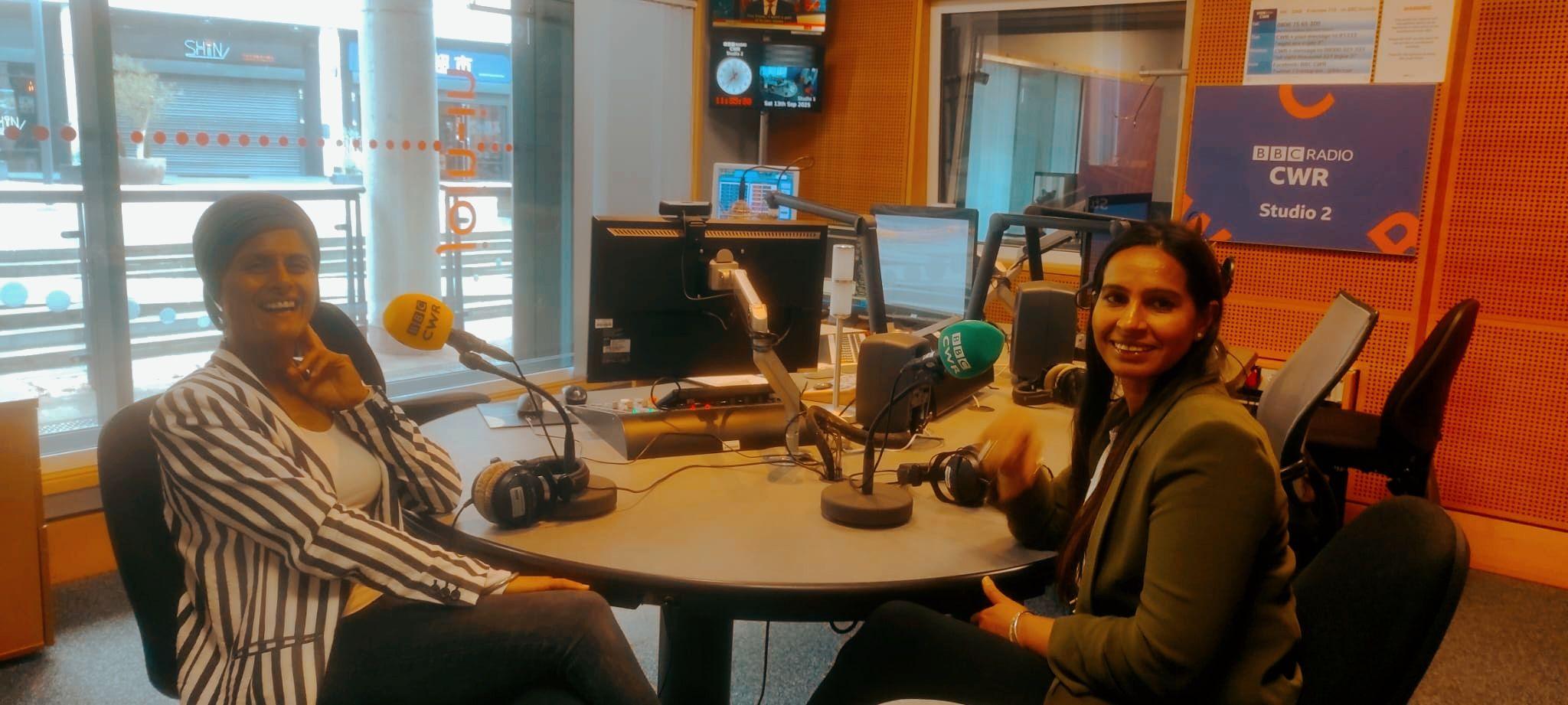
The two women said employers could do more to support women with the menopause
"If a woman can't discuss symptoms - like vaginal dryness or low libido - with her partner, it can strain relationships," Ms Sandhu said.
"I've seen marriages break down and people have affairs. It's not just about hot flushes; it's about intimacy, sleep, mood and energy."
"Plenty of women tell us they don't have anywhere else to go with these questions," Ms Flora, from Bedworth, Warwickshire, said.
"Creating a safe space matters. Once one person speaks, others feel able to say: 'That's me too'."
She added that she believed employers have a large role to play around the issue.
"South Asian women, like many women, often try to push through," she said.
"Instead of putting someone on a performance review when they're struggling, managers should be informed about menopause and make reasonable adjustments."
Those changes, Ms Flora said, could be simple from flexibility around start times for disrupted sleep to access to cooler spaces and time off for medical appointments.
"The point is to recognise what's going on and respond with care, not punishment," she said.
Ms Sandhu agreed: "Education for line managers makes a huge difference.
"If a colleague understands why someone is struggling with concentration or mood, they're more likely to offer support."
The push for conversations
Both women said language was often the first barrier.
"If you've grown up not naming periods, it's hard to name perimenopause," Ms Sandhu said.
"We teach women the vocabulary for what they're feeling and the questions to ask their GP."
Ms Flora added that male allies mattered too, from fathers and brothers to sons and partners
"They're part of the picture. When men understand what menopause is, they can be supportive instead of dismissive. That can transform family life," she said.
The pair plan to continue their outreach work around World Menopause Day and hope to use the day to highlight the importance of culturally sensitive information and care.
"Conversations save relationships, jobs and health," Ms Sandhu said.
"When women understand what's happening to their bodies and when families and employers listen, everyone benefits."
Get in touch
Tell us which stories we should cover in Warwickshire
Follow BBC Coventry & Warwickshire on BBC Sounds, Facebook, external, X, external and Instagram, external.
Related topics
- Published2 October
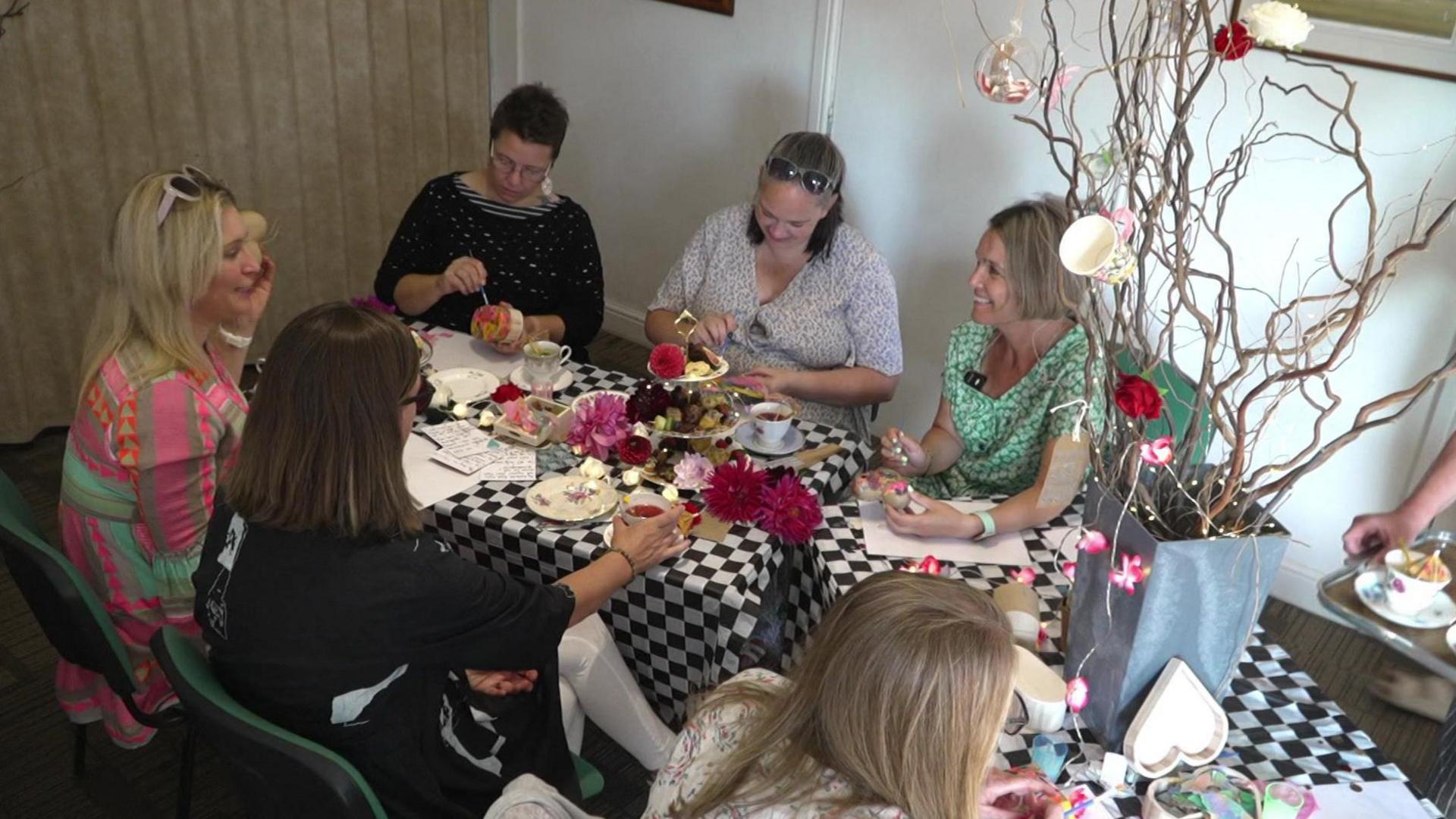
- Published22 September
